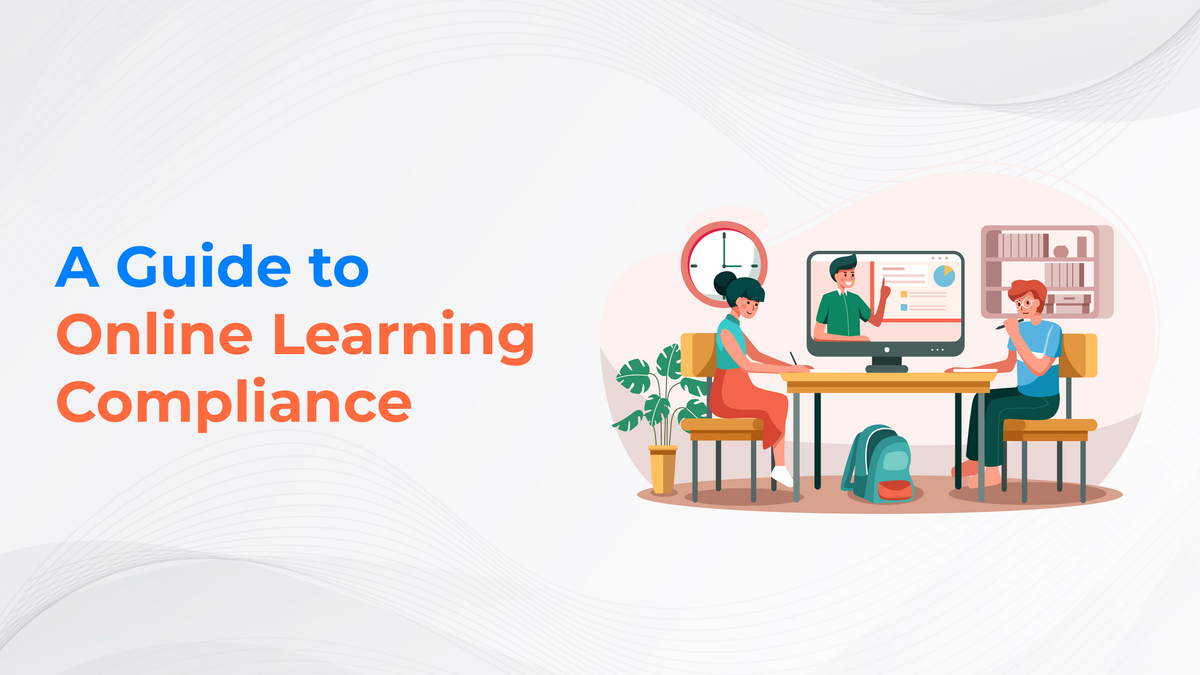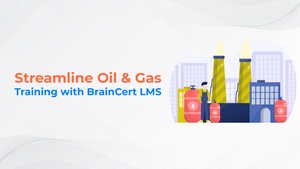As businesses and organizations increasingly adopt online learning programs, ensuring compliance with regulations and industry standards is essential. This can be a daunting task. Compliance not only protects the organization but also ensures that employees receive the necessary knowledge and skills while adhering to legal and ethical requirements. In this guide, we will explore essential strategies and best practices to ensure online learning compliance.
Understanding Regulations and Compliance Requirements
As a business or organization, it is important to understand compliance regulations and certification standards for online learning. Compliance regulations vary by industry and country, so it is essential to understand any applicable laws or regulations governing online learning in your region. This includes requirements for registering or certifying learners and obtaining permission from parents or guardians for minors. It also includes obligations for data protection and industry-specific requirements such as special training for medical fields.
To ensure successful eLearning compliance initiatives, it is important to familiarize yourself with necessary accreditation or certification processes, provide technical support for course sessions, and keep detailed records of all activities. Course management solutions like Learning Management Systems (LMS) streamline compliance processes by storing relevant data securely and automating certain aspects such as issuing certificates and enabling progress tracking.

Ensuring compliance requires clear expectations from both educators and learners and taking advantage of available technology tools designed specifically for this purpose.
Choosing the Right LMS for Your eLearning
As organizations and businesses rely increasingly on technology, implementing an LMS for training and education is essential. An LMS forms the backbone of any eLearning program, aiding compliance with industry standards. Yet, selecting the ideal LMS can be challenging.
Begin by identifying the various LMS types to establish which features are crucial when choosing one. In addition to it, analyze hardware and software requirements to ensure alignment with necessary criteria. Later, secure budget approval from applicable stakeholders before proceeding with implementation and maintenance plans. Create a timeline that provides for proper system usage while allowing for prompt user response times.
The next step is to identify your eLearning program's learning objectives and create a shortlist of criteria based on these goals, which apply specifically to your needs. Analyze all features offered by potential LMS providers against your wants/needs, including delivery type (video/audio), scalability capabilities (to accommodate large numbers of users), additional costs beyond the purchase price, user experience for instructors & learners, ease-of-use & intuitiveness of navigation, security protocols in place, customer support quality, track record of provider programs' success, etc. Test each option before making an informed decision on the best fit for your program's needs.
Once you've decided on an appropriate LMS provider, confirm that they comply with industry standards concerning implemented security measures, such as secure handling of confidential information. It's necessary not only to safeguard user data but also to meet regulatory guidelines applicable across industries, such as HIPAA. Verify that the provider offers reliable customer support for any technical issues that may arise during implementation or usage. With these steps considered, selecting an appropriate Learning Management System will not be too challenging!
Managing and Monitoring Compliance with Your LMS
Managing and monitoring compliance with an online learning program can be challenging for businesses and organizations. To ensure all learners comply with current laws, regulations, and industry standards, it's essential to create and implement an effective online learning compliance policy.
When creating a policy, it's important to establish consistent criteria and standards for online learning compliance. This may include rules on acceptable behavior during classes, course completion deadlines, notifications of changes in laws or policies, or requirements for course completion certificates.
To stay ahead of new regulations or update existing policies effectively, accurately track learner data within your LMS system using checklists, surveys, and quizzes. Understanding the implications of non-compliance will help you develop corrective action plans and provide incentives where necessary to ensure continued adherence to industry requirements and standards.
Choosing an LMS that meets all your requirements is essential to managing and monitoring your learners' progress while ensuring their continued adherence to established protocols and guidelines. Training staff members and learners on proper usage will help avoid misunderstandings, while regular audits will enable you to immediately recognize any deviations from established practices. Documenting issues faced, taking corrective action as soon as possible, and staying up-to-date on changing regulations will allow companies and organizations to adjust accordingly without compromising on quality control procedures.
Tips for Establishing an Effective Online Learning Compliance System
Establishing an effective online learning compliance system is essential for businesses and organizations to ensure that their employees meet industry standards. With the rise of eLearning, organizations must be prepared to meet the legal requirements associated with online training. To help in this endeavor, here are a few tips to ensure your organization's online learning compliance:
- Understanding the regulations for your industry's online learning obligations is crucial. Develop a clear strategy and roadmap that complies with these requirements, including policies regarding employee training, tracking progress and impact of courses taken by learners, and eliminating non-compliant manual methods of training.
- Document all training activities and certifications so you can demonstrate compliance with standards. Ensure all employees have access to the necessary materials and understand the importance of compliance. Provide them with a secure platform with clear guidelines for completing courses and expectations for learners. Develop a system for tracking progress on modules and reporting any violations to authorities if needed.
- Ensure that content is up-to-date and relevant to modern business practices so that it remains useful in preparing staff members for their jobs or certifications they may need to perform specific tasks within your company or industry regulations more generally outside your organization. Engage staff members by providing timely feedback during coursework and ongoing support when needed – this helps identify potential issues before they become bigger problems.
- Provide resources such as troubleshooting tutorials or guidance documents if any issues arise from using an eLearning platform. Perform regular audits of the system in place to ensure proper implementation.
By following these tips, you can create an effective online learning compliance system within your organization!
To Warp Up
Online learning compliance is an important consideration for businesses and organizations because it ensures their employees have the necessary qualifications and certifications to perform their duties. Ensuring online learning compliance is an essential aspect of any successful business or organization. By understanding regulatory requirements, developing customized training, regularly updating content, tracking learner progress, maintaining documentation, implementing reinforcement training, and promoting ethical behavior, you can create a compliant learning environment.
Remember, compliance is not a one-time task but an ongoing commitment to upholding legal and ethical standards within your organization. By following the tips in this guide, businesses can ensure their online learning programs comply with industry standards.









